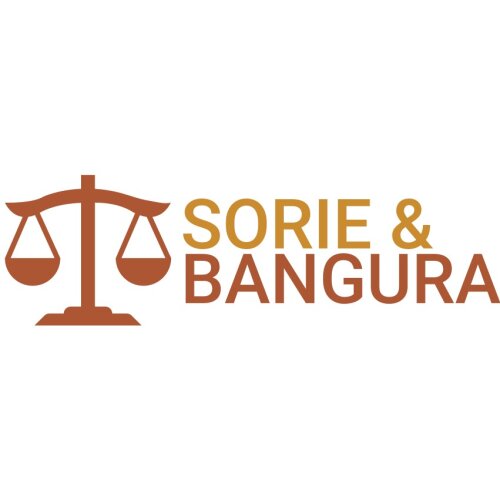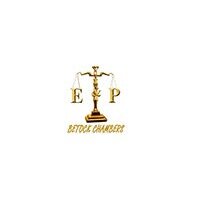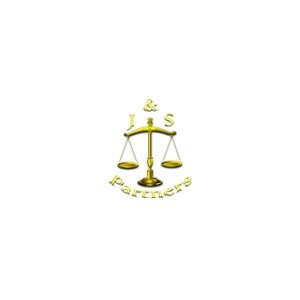Best Landlord & Tenant Lawyers in Freetown
Share your needs with us, get contacted by law firms.
Free. Takes 2 min.
Free Guide to Hiring a Real Estate Lawyer
List of the best lawyers in Freetown, Sierra Leone
About Landlord & Tenant Law in Freetown, Sierra Leone
Landlord and tenant law in Freetown, Sierra Leone, is governed by a mix of statutory provisions and common law principles. The relationship between landlords and tenants is primarily defined by the leasing agreement entered into by both parties, which outlines their rights and responsibilities. In Freetown, housing is a critical issue, amplified by rapid urbanization and increasing rental demands. Therefore, understanding one’s rights and obligations is crucial for both landlords and tenants to ensure a harmonious rental relationship and to prevent or resolve disputes effectively.
Why You May Need a Lawyer
Seeking legal advice in landlord and tenant matters can be crucial in the following situations:
- Lease Agreement Disputes: When disagreements arise regarding the terms or the interpretation of a lease agreement.
- Evictions: If a landlord is attempting to evict a tenant, or a tenant is facing eviction without just cause.
- Maintenance and Repairs: Disputes regarding the responsibility for repairs and maintenance of the property.
- Security Deposits: Issues related to the return or withholding of security deposits.
- Rent Increases: Challenges related to unreasonable or illegal rent increases.
- Unlawful Landlord Conduct: Harassment or illegal entry by the landlord.
- Property Damage or Neglect: Cases where either party claims damage or neglect of the property.
- Utility Disputes: Disagreements over utility payments or disconnections.
Local Laws Overview
Freetown’s landlord and tenant laws address the following key aspects:
- Tenure Security: The laws provide tenants with tenure security, requiring proper notice and adherence to legal procedures for evictions.
- Rent Control: Certain areas in Freetown may subject rent levels to control by municipal authorities, limiting increases.
- Maintenance Obligations: Both landlords and tenants have defined responsibilities for maintaining the premises. Usually, landlords must ensure structural integrity, and tenants must maintain cleanliness and report issues.
- Deposit Regulations: Statutes define how security deposits should be handled, including conditions for withholding and timelines for returning deposits.
- Dispute Resolution: Several mechanisms, such as arbitration and the formal legal system, are available for resolving disputes between landlords and tenants.
Frequently Asked Questions
What is a lease agreement?
A lease agreement is a contractual arrangement between a landlord and tenant that outlines the terms and conditions of renting a property, including rent amount, duration, and responsibilities.
What can I do if my landlord is threatening to evict me without notice?
If a landlord threatens eviction without notice, you should first review the lease agreement. Sierra Leonean law requires landlords to follow legal eviction procedures, which include giving appropriate notice. Seek legal advice if necessary.
How long does a landlord have to return a security deposit?
Typically, a landlord must return the security deposit within a reasonable time after the lease ends, provided there are no issues requiring deductions. The specifics should be in the lease agreement.
Can my landlord increase the rent anytime?
No, landlords cannot arbitrarily increase rents. They must follow any applicable rent control regulations and provide proper notice as specified in the lease agreement.
What should I do if repairs are not being made?
If necessary repairs are not being attended to, document the issues in writing to your landlord. If there is still no action, you may need to seek legal advice.
Is the landlord responsible for pest control?
This depends on the lease agreement. However, typically, landlords are responsible for ensuring the property is habitable, which may include pest control.
What are my options if my landlord is entering my property without permission?
Tenants have a right to privacy. If a landlord enters without notice or permission, address the issue by citing your lease agreement and, if necessary, pursue legal assistance.
How can disputes be resolved without going to court?
Many disputes can be settled through mediation or arbitration, providing a less formal and often cost-effective resolution method.
Who is responsible for utility bills?
The responsibility for utility bills should be specified in the lease agreement, but usually, tenants cover regular usage while landlords cover any service charges.
What happens if a tenant damages the property?
If a tenant causes damage beyond normal wear and tear, they are typically responsible for repair costs, which may be deducted from the security deposit.
Additional Resources
For additional help, you may contact the following resources:
- Sierra Leone Housing Corporation: Offers guidelines and support on housing and rental issues.
- Local Municipal Authorities: Can provide information on any local rent control orders.
- Legal Aid Board of Sierra Leone: Provides legal assistance for individuals unable to afford representation.
- Community-Based Organizations: Such as local tenant unions or advocacy groups that can offer support and guidance.
Next Steps
If you need further legal assistance, consider the following steps:
- Review your lease agreement to understand your rights and obligations.
- Document any incidents or disputes, including communications with the landlord or tenant.
- Seek the advice of a licensed lawyer specializing in landlord and tenant law to explore your options.
- Consider alternative dispute resolution methods like mediation if appropriate.
- Reach out to community or legal aid organizations for additional support.
Lawzana helps you find the best lawyers and law firms in Freetown through a curated and pre-screened list of qualified legal professionals. Our platform offers rankings and detailed profiles of attorneys and law firms, allowing you to compare based on practice areas, including Landlord & Tenant, experience, and client feedback.
Each profile includes a description of the firm's areas of practice, client reviews, team members and partners, year of establishment, spoken languages, office locations, contact information, social media presence, and any published articles or resources. Most firms on our platform speak English and are experienced in both local and international legal matters.
Get a quote from top-rated law firms in Freetown, Sierra Leone — quickly, securely, and without unnecessary hassle.
Disclaimer:
The information provided on this page is for general informational purposes only and does not constitute legal advice. While we strive to ensure the accuracy and relevance of the content, legal information may change over time, and interpretations of the law can vary. You should always consult with a qualified legal professional for advice specific to your situation.
We disclaim all liability for actions taken or not taken based on the content of this page. If you believe any information is incorrect or outdated, please contact us, and we will review and update it where appropriate.













